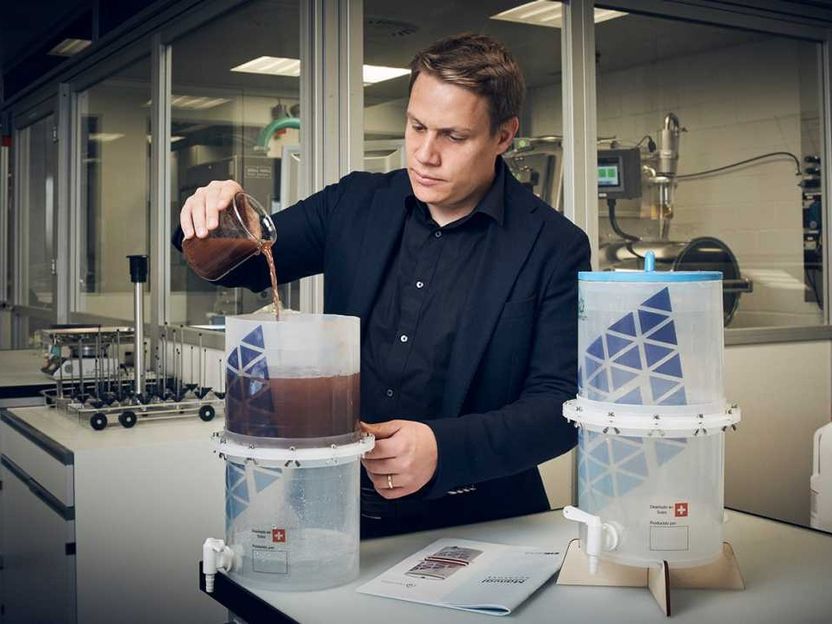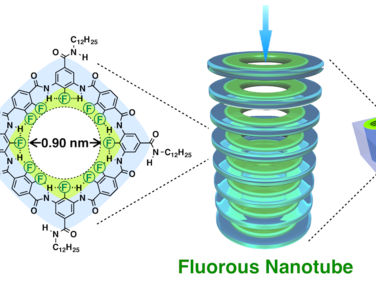Sustainable clean drinking water solution
Olivier Gröninger is improving the drinking water supply for people in rural areas of South America with his Openversum project
Advertisement
'There are still two billion people in the world without access to clean drinking water,' says Olivier Gröninger, a postdoc in Professor Wendelin Stark’s group at ETH Zurich. These are the people whom the chemical engineer wants to help. Over the past five years, he has developed an inexpensive and efficient water filter that is easy to manufacture and use. In a field study conducted in Colombia, Gröninger taught small entrepreneurs how to make the filter. There are now 100 of these filters being used in Colombia and neighbouring Ecuador by families living in rural areas. Four hundred people are benefiting from this ETH project. Thanks to the filters, people can purify river water or water from polluted groundwater wells and drink it safely.

Olivier Gröninger demonstrates his water filter in the lab.
Gian Marco Castelberg / ETH Zürich
Praised by expert juries
Gröninger’s project is based on the extensive know-how of filter membranes accumulated by the group working under Professor Stark, in which Gröninger spent recent years working on his doctoral thesis. The goal of his thesis was to find an application for water filter membranes that would be practicable for developing countries.
His project, called Openversum, has already attracted a lot of attention and has received awards from expert juries. It was among the six finalists for this year’s Hult Prize, a prestigious and highly endowed international prize awarded by the Clinton Global Initiative and the United Nations Foundation, among others. In spring, the project also won the Community Award, part of the Swiss Youth and Future Prize launched by the Swiss Agency for Development and Cooperation (SDC) and the State Secretariat for Economic Affairs (SECO).
Gröninger remains modest, however: 'The filter design itself really isn’t rocket science.' The big challenge, he says, lies in finding a sustainable solution that will keep these families supplied with drinking water for many years to come.
Gröninger recounts regrettable past cases of NGOs supplying households with free water filters and then withdrawing from the market. This meant that no experts were available to change or repair the filters one year later.
That is why Gröninger and his team at Openversum are taking a different approach. They work with local small entrepreneurs and train them to build the filters from scratch. Setting up a functioning supply chain for sourcing the individual components is also part of the process. These local entrepreneurs then sell the filters to families and take care of their long-term maintenance. “From the outset, we knew we didn’t want to just develop a product and then export it. We were looking to export the knowledge,” Gröninger says.
Another challenge was to gain the trust of the locals. He says it helped that they were working with an NGO based locally in Ecuador that people were familiar with. This organisation issued vouchers to the families so they could obtain the water filters at a reduced price.
































































